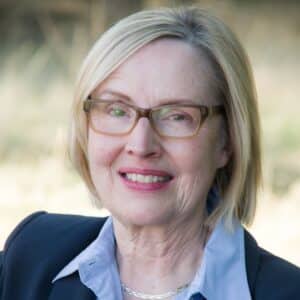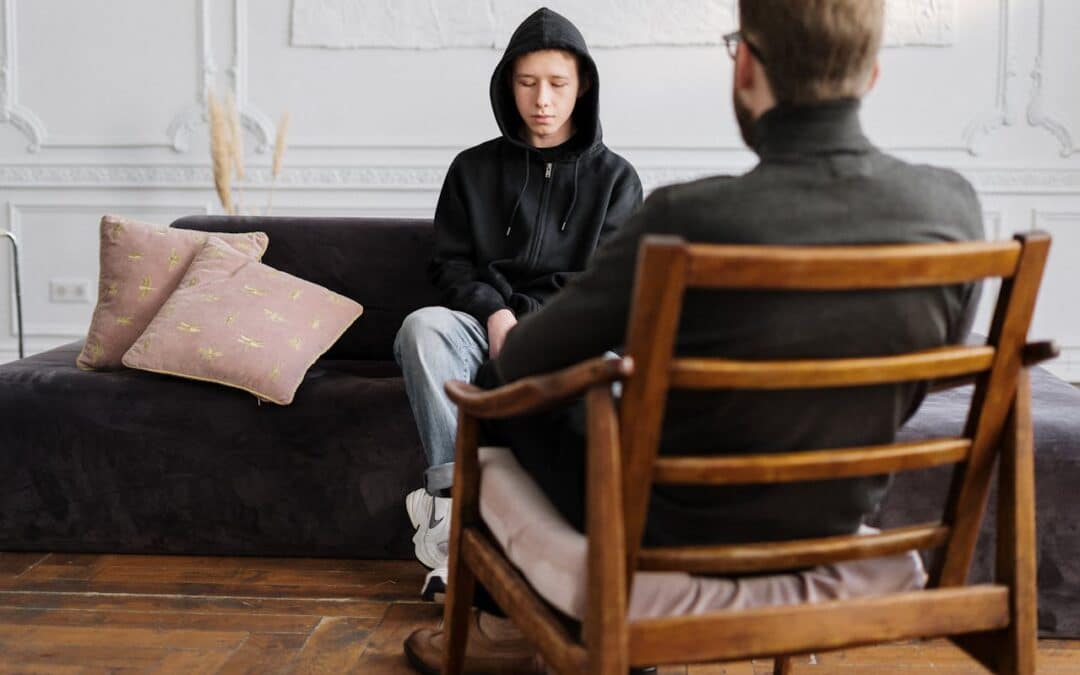What happens when the state tells counselors and therapists which identities are acceptable—and which conversations are forbidden? The Supreme Court case Chiles v. Salazar shines a light on “Must Stay Gay” laws that silence therapists and restrict free speech.
Get up to speed on a case that is going to impact freedom of thought, parental rights, freedom of speech and the future of counseling in America, by reading today’s article by UFI Board Member, Camille Williams. This is one of those cases that will leave its mark on our culture and society.
Toward free speech,
Wendy Wixom, President
United Families International
The ‘Must Stay Gay’ Laws and the Fight for Freedom in Counseling
Camille Williams
If you’re a licensed therapist in Colorado, state law requires that you assume all of your minor clients with gender dysphoria (GD) are innately and unchangeably LGBTQ, and requires you to support and affirm their identity–including assisting a minors’ gender transition. But if a gender dysphoric minor wants help from you “to change behaviors or gender expressions or to eliminate or reduce” same-sex attraction, that same law prohibits you from talking with that minor about how to better align mind and body.
Therapist Kaley Chiles calls that censorship which violates her right to free speech, and deprives vulnerable minors of “urgently needed counseling.” In Chiles v. Salazar, she asked the U.S. Supreme Court to strike down the Colorado law. Colorado classifies the banned speech as professional conduct– “conversion therapy” which uses only words– and claims the ban protects patients from “substandard care” without violating First Amendment free speech rights.
In last week’s oral argument before the high court, except for Justice Jackson, the Justices seemed concerned that the Colorado law does indeed suppress speech. There was less agreement, however, about whether the Court should invalidate Colorado’s law, or send the case back to the Tenth Circuit Court of Appeals with directions to correct its errors in this complex area of First Amendment law, and make a final decision.
Background
National interest in this case is high because its outcome will affect similar “Must Stay Gay” laws in 23 states, the District of Columbia, and many local jurisdictions. As Ryan T. Anderson and Tyler Deaton explain, such laws prohibit “mental health professionals from providing any counseling that doesn’t ‘affirm’ a minor’s stated ‘gender identity.’ In practice, this means therapists can only validate a child’s desire to pursue sex change interventions, whether social, medical, or surgical; they cannot explore underlying issues, address co-occurring mental health conditions, or help children find ways to understand themselves that don’t include medically or surgically modifying their developing bodies.”
Anderson—who applies Judeo-Christian moral tradition to law and culture–and Deaton—who advocates for LGBT rights within conservative circles–contend that the law’s “defenders have labeled therapy that doesn’t ‘affirm’ as ‘conversion therapy,’ deliberately invoking a different and emotionally fraught topic. However, helping children work through distress about puberty — a universally difficult time — bears no resemblance to the coercive practices many gay and lesbian adults condemn.”
They conclude that such laws aren’t “protecting children from harmful therapies.” Rather, they’re “guiding them onto a medical conveyor belt that itself exposes them to serious risks of fundamentally experimental interventions” that could cause “impaired cognitive function, infertility, reduced bone density, and other lifelong health consequences.”
Input from the medical community
As the number of minors presenting at gender clinics for invasive medical treatments has increased several-fold, significant numbers of doctors, therapists and professional associations have sounded a warning about the harmful effects of governments mandating “affirming” care while barring therapy for minor clients distressed by unwanted same-sex attractions and identity conflicts. They argue that such laws harm both clients and therapists.
According to the American College of Pediatricians, “Until recently, the prevailing worldview with respect to childhood GD was that it reflected abnormal thinking or confusion on the part of the child that may or may not be transient. Consequently, the standard approach was either watchful waiting or pursuit of family and individual psychotherapy . . . to address familial pathology if it was present, treat any psychosocial morbidities in the child, and aid the child in aligning gender identity with biological sex.
Experts on both sides of the pubertal suppression debate agree that within this [treatment] context, 80 percent to 95 percent of children with GD accepted their biological sex by late adolescence.” Yet laws like Colorado’s would require all of those minors’ “confused thinking” be considered immutable, and require therapist to affirm, rather than explore alternative thinking.
In addition, licensed clinical psychologist Joseph Nicolosi argues that laws “banning so-called ‘conversion therapy’ are vague and overbroad,” “restrict therapists’ speech and practice, expose therapists to threats and legal harassment, prevent the provision of evidence-based treatments, and hinder vital research.” Dr. Nicolosi practices Reintegrative Therapy®–which does not have the goal of changing sexual attraction, but such change is a known byproduct for some clients. His experiences, “facing a Board of Psychology investigation, personal threats, and barriers to his non-profit organization’s educational work—illustrate these harms, which extend to countless other therapists and clients.”
Government involvement
In addition to states, some local governments are also controlling what therapists can say. For example, according to the Alliance Defending Freedom, a Kansas City, Missouri, ordinance “requires counselors to provide same-sex marital and relationship counseling contrary to their religious beliefs if they offer relationship counseling” at all, and “prohibits counselors from publishing any materials explaining their reasons for only providing counseling related to sexual orientation and ‘gender identity’ consistent with their religious beliefs.”
A Jackson County, Missouri, ordinance “prohibits counselors from having conversations with their minor clients about ‘gender identity’ and sexual orientation consistent with certain religious beliefs,” and prohibits “any counseling of minors that seeks ‘to change sexual orientation or gender identity,’ even if a client has asked their counselor to help them reduce unwanted same-sex attraction or become more comfortable with their sex.” But that same ordinance allows counseling that “provides support and assistance to a person undergoing gender transition.” In effect, counselors can only discuss the government’s point of view about relationship counseling, sexual orientation and gender identity.
Changed Movement contends that “ethical, talk-based, change-allowing counsel[ing]” is needed, and that concerns over past practices of nonconsensual aversive techniques to affect sexual behaviors has resulted in stifling “free speech by condemning talk-based approaches that focus on personal life goals,” and “has effectively become state-sanctioned viewpoint discrimination.” The harm to counselors with strong religious views seems immediately apparent, but also affects secular approaches to therapy which see change as a possibility.
The Alliance for Therapeutic Choice and Scientific Integrity lists the harms of therapy bans as a violation of professional integrity and a violation of clients’ rights “to self-determination with a therapist who honors their freely chosen values”; and “to evaluate–with the help of their therapist–the potential risks and benefits of various options and conduct in order to promote personal responsibility and more effective choice making”; and “to seek therapy from a licensed mental health professional for any personal motivation free from governmental obstruction or intrusion.”
Conclusion
While not siding with either Chiles or Colorado, Eugene Volokh contended that “Speech cannot lose its protection just because it is relabeled [as] conduct and then banned.” Arguably, that is precisely what “Must Stay Gay” laws do. As the Ruth Institute points out: “Colorado’s ban on change-oriented counseling speech is based on two assumptions that do not withstand scrutiny: scientific consensus and professional neutrality. The law censors only one side of a deeply contested issue: discussions between counselors and clients that explore whether, how, or why a person might wish to change sexual orientation or behavior. This is viewpoint-based censorship of core protected speech and violates the First Amendment.”
It will likely be mid-June 2026 before we find out whether the highest court of the land agrees.
 Camille Stilson Williams (J.D., M.A., Brigham Young University) worked as part of the Family Law Research Project at the J. Reuben Clark Law School at Brigham Young University, and has taught family law for undergraduates. Her research interests are related to women’s and family issues. Her publications have supported the sanctity of human life and the necessity of the natural family for the flourishing of individuals and societies. After a career as an assistant city attorney, she retired in Provo, Utah, where she continues to practice law. She and her husband, Richard, are the parents of five, and the grandparents of twenty-four.
Camille Stilson Williams (J.D., M.A., Brigham Young University) worked as part of the Family Law Research Project at the J. Reuben Clark Law School at Brigham Young University, and has taught family law for undergraduates. Her research interests are related to women’s and family issues. Her publications have supported the sanctity of human life and the necessity of the natural family for the flourishing of individuals and societies. After a career as an assistant city attorney, she retired in Provo, Utah, where she continues to practice law. She and her husband, Richard, are the parents of five, and the grandparents of twenty-four.

